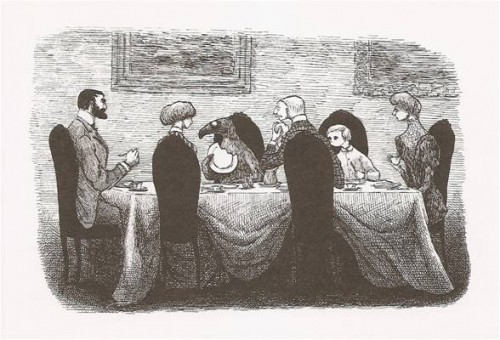
I may not be the only one for whom an element of Law has infiltrated the yearly ritual of gift-giving. On the giver side, I spent an undue amount of time and energy trying to find things adequately utilitarian yet also personal, valuable but not profligate, suited to the taste of various people. And on the recipient side, I feel like I’m growing progressively more choosey: partly as a function of growing older, with ever-more specific tastes, and partly as a function of the Internet (numerous sub-forums are involved in my selection of even a minor thing for myself). The diversity of shopping options now allows someone to narrow their preferences, to the point of impossibility, almost: just get me a gift card for Amazon or do the bizarre, illogical moral bookkeeping involved in making donations ‘in my name’ to some impossibly narrow-niched charity – (‘Heifer International? Um, might non-indigenous species destabilize foreign ecosystems?’). Just to say, our own values and aesthetics are so narrowly-defined that it’s almost impossible to give a surprise gift and have it be a hit.

(via xkcd.com)
In terms of the problems with gift-vetting, Ethan’s article on wedding registries from the most recent Mockingbird issue nails it. And in terms of commercialization, various Christian Christmas atavists out there have said all that needs saying. But if we think of Christmas as the advent of something new, something unexpected and apparently undesired, it can reveal a few things about the ideal shape of gift-giving.
First, the Incarnation broke with established Jewish paradigms, God’s own “Doubtful Guest” (Gorey) acting in frankly obnoxious and presumptuous ways (c Lk 13:10-17, Mt 21:12-17). The closest analog to this, in human gift-giving, might be to give someone a puppy or an adopted child – wonderful things, but upsetting when unasked-for. While we look for gifts which fall within the realm of our established expectations, lifestyle, and identities, Christmas tells the story of an unlooked-for, unanticipatable gift changing things – partly an affirmation of human life, but simultaneously an event absolutely disruptive not only to our control over the trajectory of our lives, but as a reproof to that sense of control, of self-mastery, altogether.
And second, the close unity of Incarnation and Cross should be kept in view. Christ came first as a baby, one totally dependent, a pure recipient (and rather like the adopted child example above – unplanned in the extreme). As receiver of the gifts of material comfort, human love and approval, and earthly power, Christ’s reception is marked by self-abnegation at every turn. The truest receptivity of the gifts of others will take the form of suffering; suffering a gift which redefines the form of one’s life completely. A gift, which comes unbidden and may wreak change upon the recipient, finds its most extreme form in death, which Christ accepted with open arms, even while acknowledging its conflict with his own desires: “My Father, if it is possible, may this cup be taken from me. Yet not as I will, but as you will.” The Incarnation, the voluntary stripping of the Word’s divine prerogatives, foreshadows and even anticipates the Cross, the stripping of life itself, a surrendering posture of utter receptivity which creates the passive material of Resurrection.
For human gift-giving, there’s actually not that much of a practical parallel I can draw here, except that we should feel a little unburdened from the twin Laws of giving the perfect present and perfectly defining one’s taste. We tend to see the season merely as an affirmation of the lives or identities we have chosen, but there’s a disruptive element, too. We identify both with the one whose gift was rejected and as those who did (and still do, at least partially) the rejecting. It’s a time which aims to celebrate not reciprocity in relations, but asymmetry – that oddly-apportioned set of shoes from an uncle, for instance. We can’t live too much in that world now, but we think back on a story of an absolute gift, one beyond the logic of return and exchange, and we look for the new in Advent, too: new beginnings, unexpected gifts, even an intrusive houseguest or two.

COMMENTS
One response to “Gifts Beyond Reciprocity”
Leave a Reply














Well, hm. Why specifically the example of an adopted child, and not just an unplanned pregnancy (like Mary’s?) Interesting to look for the grace in unexpected gifts as opposed to grace in unexpected loss (suffering) – in my life I find the latter much easier to grasp. Unexpected gifts raise my (human) suspicion of grace. Which I guess means I need it…or maybe the loss is the gift.